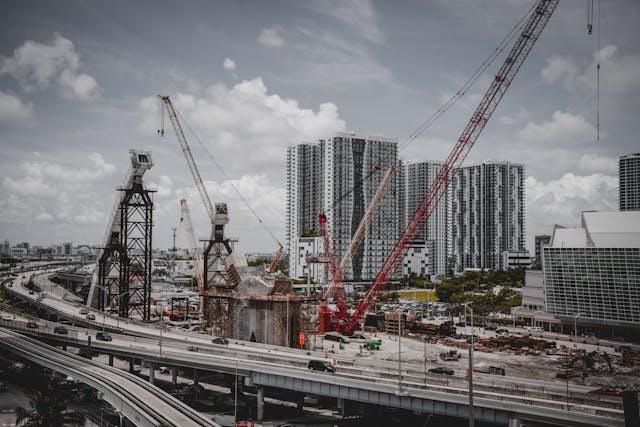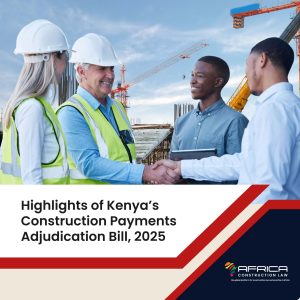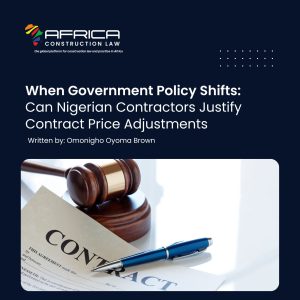Introduction
Contractors will always want to avoid assuming full liability for their performance. Since construction projects tend to exceed both time and budget, contractors try to minimise their risk of financial exposure by negotiating to limit or exclude their liability.
Libyan law is now settled, aligning with international standards in allowing contracts that limit parties’ liability and that may exclude most forms of liability in most cases.
Limitation and Exclusion of Liability Under Libyan Law
The Libyan Civil Code (“LCC“) is the sole source of Libyan law addressing exclusion and limitation of liability. Special regulations applying to the oil and gas and construction industries, such as the Administrative Contracts Regulation and the National Oil Corporation Unified Contracting Policy, as well as the Libyan Commercial Code, do not address this issue.
Tortious Liability
Under Libyan law, contracting parties cannot exclude tortious liability. However, they can include liability cap clauses in the contract. These clauses can limit the compensation amount that a party can recover for torts occurring ancillary to the contract performance (Article Article 220 (3) LCC).
Contractual Liability
The LCC explicitly allows parties the freedom of contract to generally exclude and/or limit contractual liability(Article 220 LCC), with certain exceptions.
First, Libyan law prohibits excluding liability arising from a party’s own fraud or gross negligence, although such liability can be contractually limited (Article 220 LCC). However, parties can contractually exclude their own liability for losses arising from the fraud or gross negligence of persons that parties use to perform the contract, such as subcontractors.
Fraud and gross negligence are not defined under Libyan laws. This gives judges the statutory authority to decide whether or not a particular action falls under “fraud and/or gross negligence”. Therefore, it is crucial to contractually define fraud and gross negligence to mitigate the risk of broad interpretation by judges. Such a definition would be contractually binding on the parties, as the parties are free to determine their own terms in a contract, provided that these terms do not violate mandatory rules under Libyan law (Article 147 (1) LCC).This ensures clarity and helps protect contractors by providing a contractual definition that might reduce ambiguity in legal proceedings.
Second, Article 650 LCC prohibits parties from contractually excluding or limiting defect liability. The contractor and engineer remain responsible for any defect that appears within a period of 10 years after delivery, and they cannot exclude or limit this responsibility contractually. Any contractual clause to the contrary is deemed invalid under Libyan law.
Law 6 and subsequent changes
Libyan law’s position on the exclusion and/or limitation of contractual liability has changed in recent years. In 2016, the General National Congress (the Libyan legislator at that time) enacted a law (“Law 6“) amending several provisions in the LCC and thereby prohibiting contractual limitation or exclusion of liability (Law No 6 of 2016 regarding Amending the Libyan Civil Code) While some Libyan courts applied Law 6, others did not, creating confusion and legal uncertainty in the market.
This confusion was resolved in 2020, when the Libyan House of Representatives (the General National Congress successor) enacted Law No. 1 of 2020, which annulled a list of laws issued by the General National Congress between 2014 and 2020, including Law 6.
The View of Libyan Courts on Exclusion and Limitation of Liability
Libyan courts generally respect and enforce the agreements made by the parties in a contract. If there are exclusion or limitation of liability clauses, the courts will consider these clauses when making their decisions. To ensure the validity of these clauses, they must be drafted accurately and clearly. Ambiguities in the clauses may lead Libyan courts to interpret the clauses in ways that might not be in the parties’ intended interests. Therefore, we advise clients to carefully consider their position on liability and ensure that liability clauses clearly and accurately reflect clients’ intentions.
However, bad faith in performing the contract, such as wilful misconduct or fraud, may lead the courts to invalidate exclusion and limitation of liability clauses. For example, if a party is found to have acted in bad faith, the court may decide that such clauses do not apply to protect the offending party from liability. The principal of good faith is integral to Libyan law, As contracts are required to be performed in a manner that is fair and honest (Article 148 LCC).
Some clients use international forms for EPC/Turnkey Projects, such as the International Federation of Consulting Engineers (“FIDIC“) Silver Second edition 2017 form. The FIDIC form includes template clauses for excluding and limiting contractor liabilities. These clauses can be adopted under Libyan law, provided such clauses align with local legal requirements.
Conclusion
While exclusion and limitation of liability clauses are recognised under Libyan law, their enforceability is conditional upon clarity, fairness, and compliance with statutory requirements.
Nusaiba Alraes, Associate at Eltumi Partners, a law firm specialised in advising on Libyan and international energy and infrastructure matters nusaiba.alraes@eltumipartners.com


















